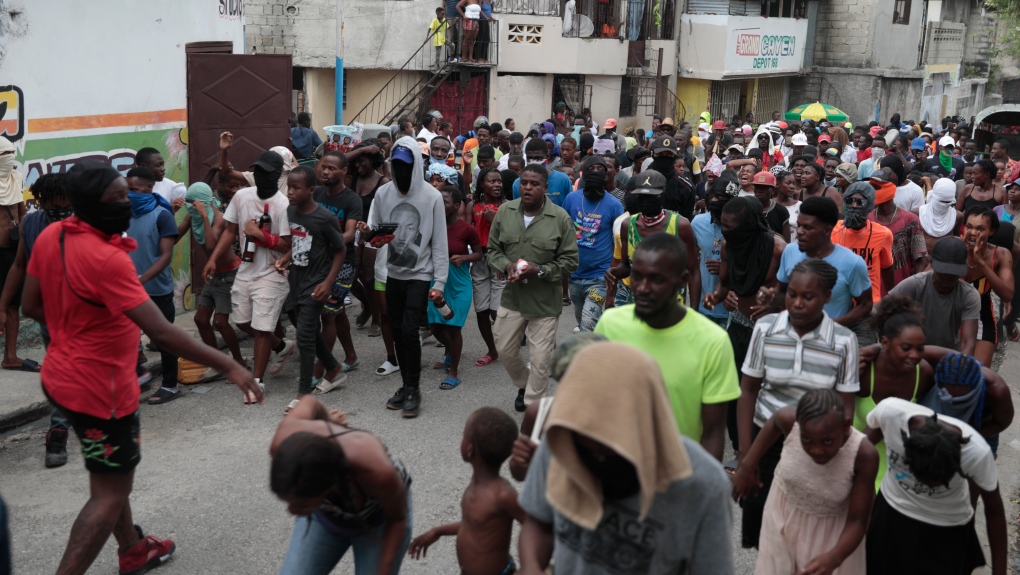In the narrow streets of Haiti’s capital, Port-au-Prince, a somber procession of black and white-clad teenagers hoisted a coffin, their voices rising in a chant against the gang coalition known as “Live Together.” The coffin held 16-year-old Jhon-Roselet Joseph, struck down by a stray bullet in Solino, a community under siege by violent gangs.
Haiti’s escalating gang violence has made it increasingly difficult for families to find closure for their slain loved ones. The United Nations reports over 2,500 casualties in the first quarter of the year alone, with many victims left to decay in the streets, too dangerous to retrieve. Despite these dangers, Joseph’s friends and family navigated perilous streets to ensure he received a proper burial.
On a sweltering Saturday morning, the mourners, accompanied by musicians playing drums and trumpets, pushed into a crowded cemetery. As they passed bottles of Barbancourt rum, tears flowed freely. When the coffin was opened, grief and vows of vengeance echoed through the air. “Solino will never die! We will always stand up and fight,” declared Janvier Johnson, 28.
Joseph’s tragic death occurred as he was returning home after a haircut, a stray bullet ending his life. His cousin, Frantz Paulson, who has also lost his mother and brother to gang violence, detailed the relentless attacks on Solino, one of the few remaining areas not yet overtaken by gangs. With gangs controlling 80% of the capital, Solino remains a strategic battleground, its residents resolute in their resistance.
Joseph’s mother, Daphne St. Cyr, shared fond memories of her son, who dreamt of becoming an agronomist and loved soccer. “Ever since he was a baby, anything he could find, he was kicking it,” she reminisced. As she looked at her daughter, St. Cyr expressed her fears and hopes for her remaining child’s safety.
The gang coalition, led by ex-police officer Jimmy Chérizier, known as Barbecue, is blamed for the violence in Solino. Despite the dire situation, community leaders like Daniel Saintiace vow to defend their neighborhood. “We resist. That’s how we stay strong,” he stated.
Finding a burial place for Joseph was a relief for his family amid the chaos. Gangs have blocked access to many cemeteries, forcing families to seek alternatives for honoring their dead. “Not all cemeteries are available,” said Nicy Nadir, a funeral musician.
Pastor Claudy Midy, who assisted in organizing Joseph’s funeral, emphasized the importance of burials in Haitian culture, particularly for the young. His funeral home often provides symbolic ceremonies when bodies cannot be recovered. Midy finds solace in helping families navigate their grief, underscoring the profound connection between death and life in Haiti.
Joseph’s burial, amidst the tumult of gang violence, highlights the enduring significance of sacred traditions and the community’s resilience in the face of overwhelming adversity.






